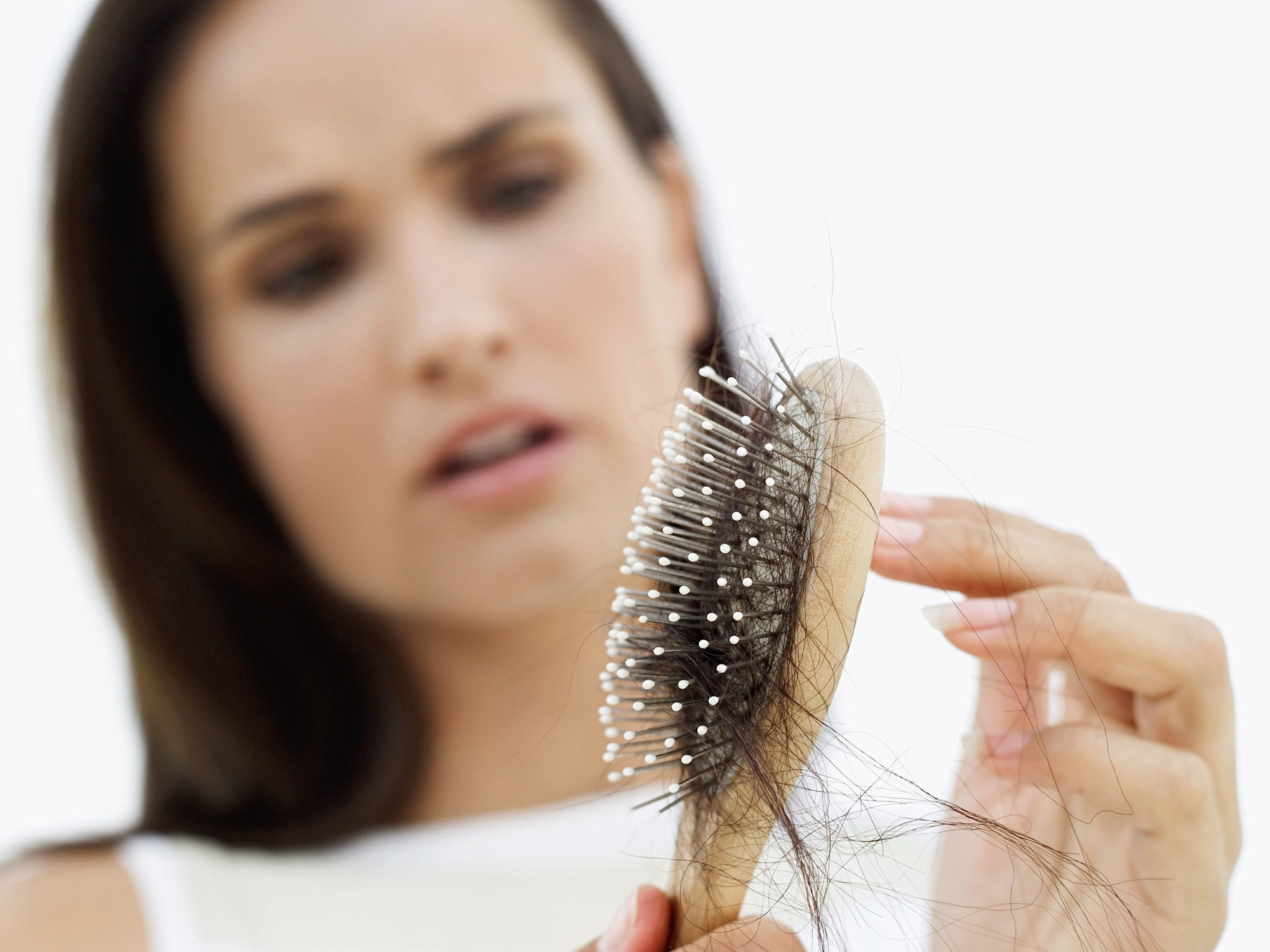Get Easy Health Digest™ in your inbox and don’t miss a thing when you subscribe today. Plus, get the free bonus report, Mother Nature’s Tips, Tricks and Remedies for Cholesterol, Blood Pressure & Blood Sugar as my way of saying welcome to the community!
5 essential oils that put Minoxidil to the test

If you are losing your hair, or just want to keep what you have looking and feeling strong and healthy, you’ll be happy to know that there is a safe, pleasant and effective alternative to Minoxidil, the drug mostly widely used for hair regrowth.
Minoxidil users risk a long list of side effects. Why use a chemical that may cause chest pain, swelling and high blood pressure when you can opt for natural oils that smell great, work wonders on your hair and carry extra health benefits as well?
You’re probably familiar with some of these essential oils and may already be using them for their positive effect on sleep, mental clarity and other aspects of physical well-being.
Now, you can add healthy hair to the list…
5 essential oils you should try
1. Lavender oil.
One of the mechanisms for hair regrowth is widening of hair follicles, allowing for thicker hair to grow. A 2016 study showed that a topical application of lavender oil significantly increased the number of hair follicles in female mice.
There is also a connection between bacteria and hair loss. Specifically, there are gut bacteria that consume biotin, a vitamin needed for growth of hair and nails. Lavender oil’s calming and relaxing scent helps lower stress levels that can throw your gut out of balance.
2. Rosemary oil.
A 2015 study found this fragrant oil to be as effective as 2% minoxidil for hair regrowth. Rosemary did not produce scalp itching, as Minoxidil does.
To use rosemary oil, rub it directly into your scalp or mix it into shampoo, either store-bought or homemade.
3. Cedarwood oil.
As the name implies, cedarwood oil is extracted from the fragrant wood of cedar trees by using steam distillation.
Cedarwood can be applied topically to the scalp and hair. Combine it with lavender and coconut oil which are gentle and balance out the sharp aroma of the cedarwood nicely.
In a study done in Scotland. 86 patients with alopecia were randomized into two groups. One group massaged a combination of cedarwood, thyme, rosemary and lavender oils in grapeseed carrier oil. After doing this for seven months, 44 percent showed improved symptoms, as compared to only 15 percent who just used grapeseed oil.
4. Peppermint oil.
Peppermint helps calm skin and scalp inflammation with its cooling sensation. Due to powerful antiseptic properties, it can treat dandruff and lice.
When peppermint oil was applied to mice for four weeks, it resulted in noticeable hair growth as well as increased scalp thickness, and greater follicle depth.
Hair loss in both men and women is often due to restricted blood flow to hair follicles. As a vasodilator, peppermint oil increases circulation, preventing hair loss and improving hair growth.
In addition to these uses, peppermint oil relieves itching, repels insects and soothes sunburn.
5. Lemongrass Oil.
A 2015 study found that lemongrass oil reduced dandruff significantly in just seven days, and that the effect increased even further after 14 days.
Lemongrass oil is a cleanser and deodorizer as well. It can soothe an itchy scalp, relieve stress and soothe headaches. Massage some into your scalp or add to shampoo or conditioner.
Just a few precautions
- Try to avoid getting essential oils in your eyes. If you do, rinse well with water until any stinging has stopped.
- When adding oils to shampoo or conditioner, a good rule of thumb is one part oil to five parts shampoo.
- If you have sensitive skin, be sure to dilute essential oils before applying them to your scalp.
- If you are allergic to plants like ragweed, test oils on a small area of your skin first to see if you have an allergic reaction.
Essential oils can be surprisingly helpful, providing natural, safe ways to promote good health. In fact, you may want to read about the effects of essential oils blood pressure and cholesterol.
Sources:
- Anti-dandruff Hair Tonic Containing Lemongrass (Cymbopogon flexuosus) Oil — Forschende Komplementarmedizin
- Peppermint Oil Promotes Hair Growth without Toxic Signs — Toxicology Research
- Randomized trial of aromatherapy. Successful treatment for alopecia areata — Archives of Dermatology
- Rosemary oil vs minoxidil 2% for the treatment of androgenetic alopecia: a randomized comparative trial — SKINmed Journal
- Minoxidil — KnowYourOTCs.org













